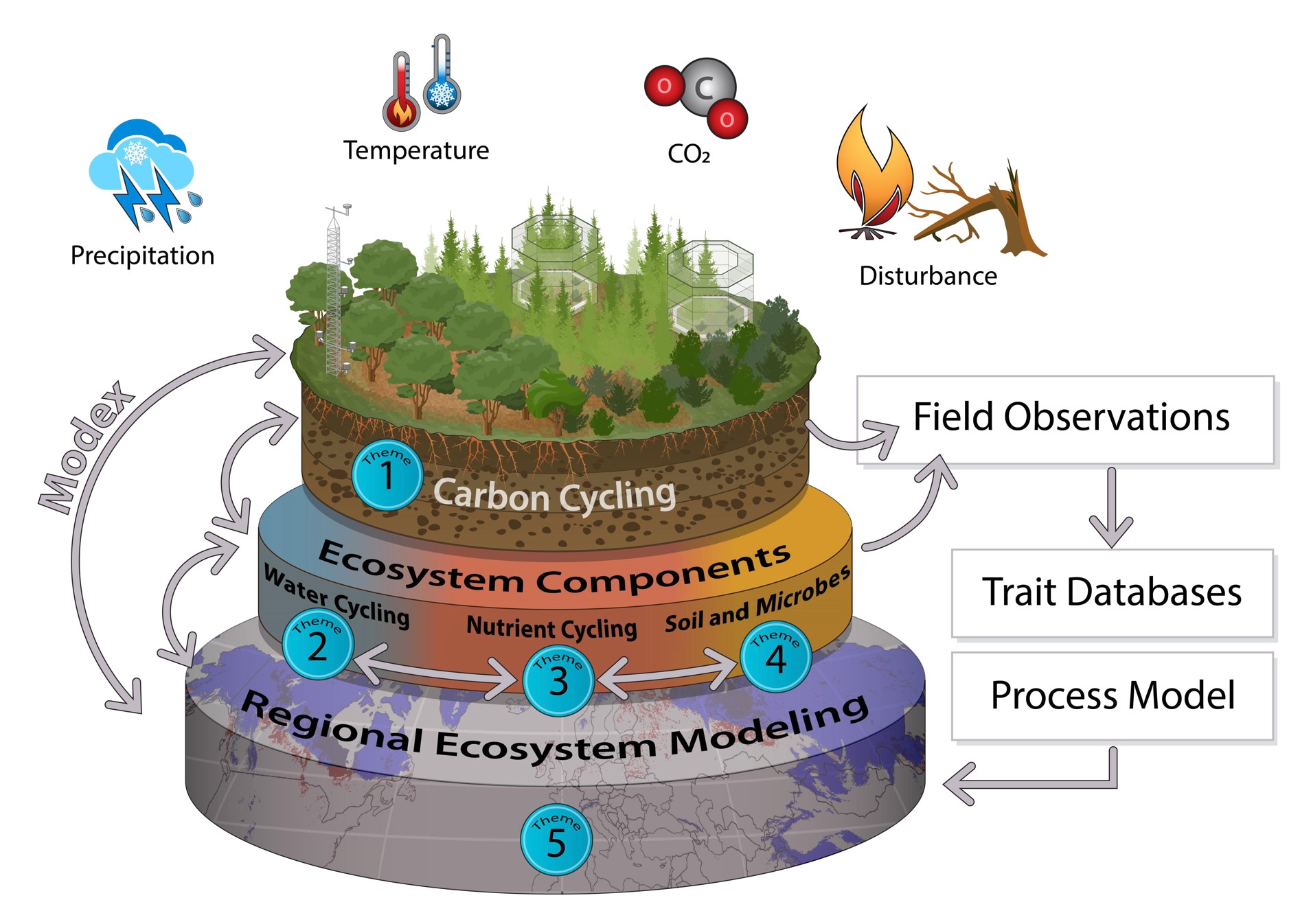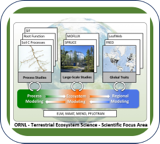Research sponsored by the Office of Biological and Environmental Research within the U.S. Department of Energy’s Office of Science.
Terrestrial Ecosystem Science Scientific Focus Area
Terrestrial ecosystems support human life by providing food, fiber, and fuel, enabling and sustaining our modern human world. However, environmental change is expected to alter net ecosystem exchange across biomes, both above and belowground. Earth system models predict that complex feedbacks within ecosystems will respond differentially because the mechanisms underlying the responses remain uncertain, causing large inter-model variability in Earth system model ensemble simulations and strongly limiting Earth system predictability. Therefore, impacts to human societies and their supporting infrastructures may not be adequately predicted, inhibiting adaptation efforts across the nation.
The ORNL Terrestrial Ecosystem Sciences Scientific Focus Area (TES SFA) focuses on ecosystems subject to water, energy, and nutrient constraints whose impacts are highly uncertain in ESM predictions. Key areas of uncertainty include the responses of cold and water-logged peatlands, as in the Spruce and Peatland Responses Under Changing Environments (SPRUCE) experiment near Bovey Minnesota (Theme 1). At the other end of the spectrum, the responses of ecosystems on the ecotone between energy- and water-limited regions are also not well represented in models. In transition zones exemplified by the Missouri Ozarks AmeriFlux (MOFLUX) observational site near Ashland Missouri, plant species may experience extremely dynamic processes of mortality, natality, and growth (Theme 2). Belowground microbial and nutrient biogeochemical cycling (Themes 3 and 4) are also not well understood, and impart significant limitations on aboveground ecosystem structural and functional responses to changing environments in both experimental sites.
The TES SFA features two trait databases and one observational site to improve the understanding and modeling of terrestrial ecology across the ecological community.
- LeafWeb collects and makes available plant photosynthesis data.
- Fine Root Ecology Database (FRED) which collects and makes available root trait data.
- The SFA also features direct measurements of plant traits at The Morton Arboretum.










